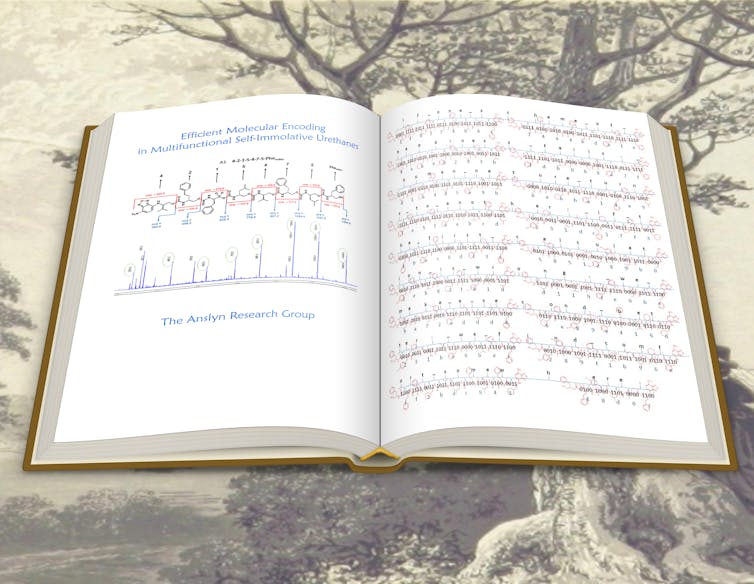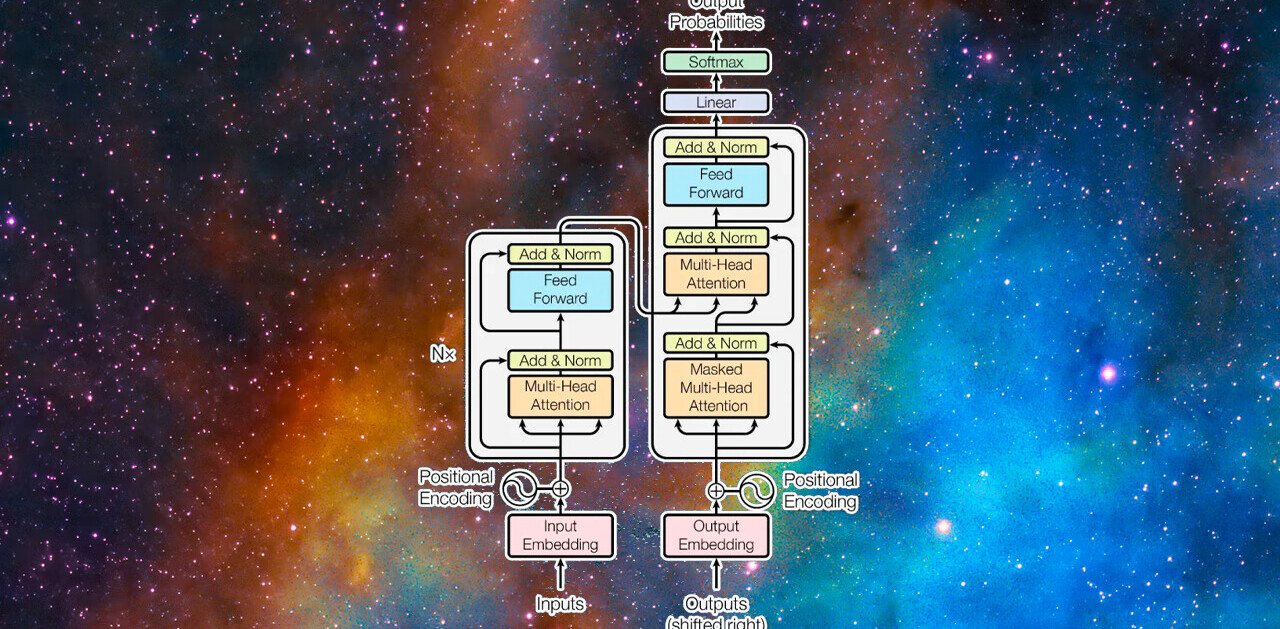The words “if one scheme of happiness fails, human nature turns to another” were originally published in 1814 in Jane Austen’s Mansfield Park. At the time, the words were printed using revolutionary steam-powered printers that could roll through over a thousand sheets of paper an hour.
Since the early 2000s, it’s been possible to read all of Jane Austen’s works online, including Mansfield Park. But as of this year, the list of places her words are published has had a bizarre addition.
[Read: ]
In a new study, a team from the University of Texas at Austin has encoded a quote from Mansfield Park on a tiny plastic molecule. The researchers hope the study will help prove the viability of a new kind of technology for storing data.
Archiving has always been a problem. Even the most carefully stored and protected copies of Mansfield Park’s original print run are showing their age, with the ink fading and the paper crinkling.
We produce more data than ever. Current estimates put it at 1.145 trillion megabytes of data a day – if someone attempted to download all of it using current internet speeds it would take almost two billion years.
But the vast data centers we currently use to store data – largely using magnetic tape – is not up to the job. Even though there’s constant evolution in hardware and software, the requirements for faster processing powers and smaller components means lack of effective storage is creating a bottleneck and the current system cannot keep up with demand.
The search is on for smaller, more stable and efficient alternatives to digital hard drives. Recent research interest has fallen on DNA data storage – the idea we could use the building blocks of life, the system nature spent millions of years evolving to encode the blueprint for our species, as a means of storing and reading our own history and knowledge. When one scheme of technology fails, human nature turns to another.

As a molecule, DNA lasts a long time – 500,000 years if stored correctly – far outstripping paper and ink’s potential lifetime by an order of several magnitudes. But it must be kept sterile and needs careful handling. This can make storing information using DNA expensive.
But there’s another class of materials known to last even longer than DNA. These synthetic products discovered a century ago have stability, ease of manufacturing and storage potential that far outstrips DNA. These plastics, or more specifically, polymers, are long-chain molecules that can most easily be described as containing multiple repeat units –- each known as a monomer.
Researchers calculate the four base pairs – pairs of DNA building blocks – can store 10¹⁹ bits of information per cubic metre. But when we use polymers, we have more than four building blocks to choose from. In fact, there are as many monomer choices as you can locate commercially, so there’s potential to increase the information density exponentially.
Read more: The libraries of the future will be made of DNA
For their monomers, or building blocks, the team in Texas used sixteen different amino alcohols. Stitching these together, they created eighteen longer molecules, called oligomers, each made up of individual monomers. Within the longer molecules, combinations of monomers corresponded to specific letters, with cheaper monomers corresponding to more commonly used letters.
When read back, the molecules reveal Jane Austen’s quote from Mansfield Park.
if one scheme of happiness fails, human nature turns to another; if the first calculation is wrong, we make a second better: we find comfort somewhere.
The researchers chose the passage because they found it to be “uplifting in these trying times, and it is easily understood without the context in the book”.
The team certainly found “if the first calculation is wrong, we make a second better”. Their first independent expert to validate their method could only recover 98.7% of the data. With some modifications to the reading process, they were able to return full deciphering of all 158 monomer sequences without errors.

Plastic data storage
Plastics may not be the most obvious choice for data storage, but on consideration, they are an extremely suitable material to use.
Since we began mass manufacturing plastics, we’ve traditionally stuck to either employing a single monomer type per product or simple combinations of one or two monomers. These have come to dominate our ways of life.
Plastics are stable under normal environmental conditions. While in many instances this is a disadvantage, like when they make their way into the environment, in some instances it does serve extremely useful functions.
Over the past 50 years, researchers have made remarkable strides reducing the dispersity (the molecular variation – usually in either mass or shape) of synthetic polymers and improving our ability to control the sequence distribution of the monomers.
The new study from Texas has shown by going outside of the confines of DNA, you can encode more complex information in a far smaller chain length, due to the increased choice of monomers available.
Future use will probably depend on the commercial availability of monomers, such as which amino alcohols can be readily accessible from renewable sources. But the potential is vast. Encoding short-chain polymers is not far removed from encoding DNA, and the process of reading the sequences is similar in both.
The team in Texas plans to look into bottlenecks regarding the scalability of this method, interrogating the speed and efficiency of the writing and reading processes.
Though the original paper text of Mansfield Park will inevitably fade in the coming centuries, one small fragment of it has been preserved on a polymer for perhaps centuries to come –- as long as we have the equipment available to decode it. As the final fragment of the quote declares, “we find comfort somewhere”.![]()
This article by Thomas Swift, Lecturer in Polymer Chemistry, University of Bradford, is republished from The Conversation under a Creative Commons license. Read the original article.
Get the TNW newsletter
Get the most important tech news in your inbox each week.






